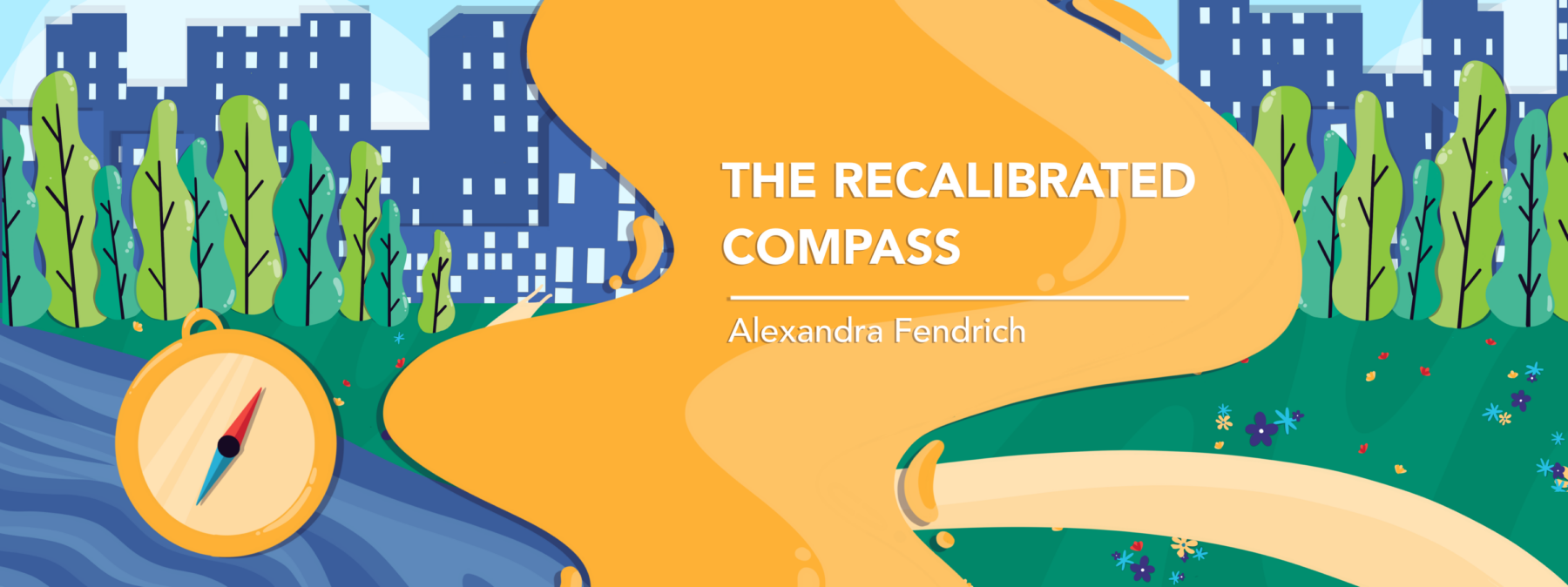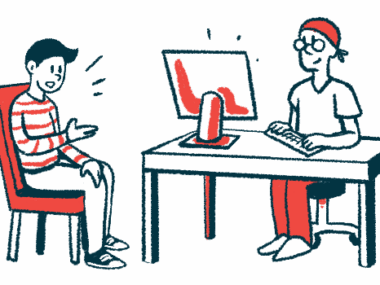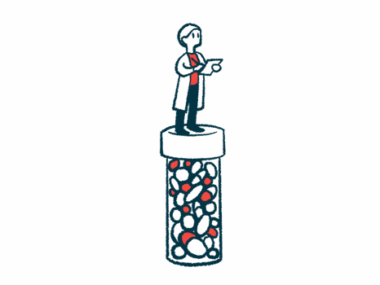The recalibrated compass: Finding my way after an AS diagnosis
How I've forged a new path, with some help from my late mother
Written by |

For the first year after my diagnosis, I dreamed almost nightly of my healthier self.
In the depths of rapid eye movement sleep, I was sprinting across the soccer field, jogging down the paved roads of Central Park in New York, even shuffling my seventh-grade students through the subway as we rushed to make it to their basketball game across town. When I opened my eyes, the throbbing in my lower spine reminded me that these activities were no longer part of my life, and another kind of pain would hit me: a deep sense of loss from no longer being able to do many of the things that I loved.
I was diagnosed with axial spondyloarthritis (also known as ankylosing spondylitis) at age 26 after a last-minute X-ray revealed damage in my sacroiliac joint. This led to an MRI, which showed more evidence of long-term inflammation. After months of searching for reasons behind the pain in the palms of my hands, arches of my feet, and, most noticeably, my lower back, I felt relief at having arrived at what I thought was an answer.
Despite starting a biologic medication, managing a new chronic illness forced me to let go of many things I loved. I quit my soccer teams and running clubs and eventually resigned from my position as a teacher. Letting go of these activities was a major manifestation of my disease — one that wasn’t talked about during my 15-minute rheumatology appointments.
With the help of a therapist, I came to understand that this heaviness was a form of grief. Since losing my mother to a rare disease in high school, I thought I knew grief well. But this was a different sense of loss; I was struggling to find direction when my sense of self had been stripped away. Sports, activity, and being constantly on the move were the primary ways by which I regulated myself. Without these things, I felt lost.
Recalibrating
There was no one I wanted to talk to about this more than my late mother, a writer and teacher, but mostly, the person I always turned to for help. On days when I’m especially missing her, I like to turn to her writing to hear her voice. One Sunday afternoon, I decided to crack open her book “Shedding Constraints,” the last piece of writing published in her name. I found myself reading the last chapter (which has since been permanently dog-eared), titled “The Recalibrated Compass.”
In it, she wrote, “The future rarely unfolds in a straightforward path. Often it’s more like a zigzag or something even more confusing. Sometimes we go forward and backward at the same time or in close succession.”
Since my diagnosis in 2021, it often seemed like I was going backward more than forward: failing medications, having surgery as the result of a treatment side effect, fighting with doctors and insurance, and losing friends who didn’t understand why I wasn’t the same. For months, it was difficult to see a way out.
With a lot of practice and patience with myself, I found ways to pivot. Though I could no longer play soccer, I started swimming and biking, and prioritized afternoon walks across the Williamsburg Bridge. I switched to a job in education that enabled me to work remotely. But the biggest change was how I allowed myself to have bad days and accept that flare-ups, pain, and overall uncertainty were part of the ride.
There are many times that my disease makes me angry. But if I’m able to take a step back, despite the stiffness that haunts my joints, I realize that my illness has empowered me to be flexible in ways I never thought possible. It has forced me to recalibrate my compass as I find new approaches to make meaning in my life.
Writing has been a huge part of my recalibration. When I write, I can create a narrative about something that often feels out of my control. This column will attempt to do just that: share pieces of my challenges, victories, and everything in between. In the process, I hope I can give you some insight into ways you can shape your own path, most likely with some zigzagging along the way.
Note: Ankylosing Spondylitis News is strictly a news and information website about the disease. It does not provide medical advice, diagnosis, or treatment. This content is not intended to be a substitute for professional medical advice, diagnosis, or treatment. Always seek the advice of your physician or other qualified health provider with any questions you may have regarding a medical condition. Never disregard professional medical advice or delay in seeking it because of something you have read on this website. The opinions expressed in this column are not those of Ankylosing Spondylitis News or its parent company, Bionews, and are intended to spark discussion about issues pertaining to ankylosing spondylitis.







Joscelyn
Insightful article. I look forward to reading more of your stories as you navigate forward Alex.
Susan
Very moving. The grief resonates with those times activities / life has not been possible for me because of the HLAB27 gene. A no / low starch diet has helped me regain health I thought I'd lost and now run again. It's certainly worth a try in my opinion for everyone who has AS.
Alexandra Fendrich
Thank you for for your kind words and insight, Susan. Glad to hear you've found success with the no-starch diet!
Stephanie
Such a beautiful perspective on handling difficult adjustments. Really looking forward for more of your thoughts!
Virginia
Alexandra, Alex, You write with wisdom, grace, compassion, and precision. You came by all of those qualities honestly, even as you've grown beyond what you learned at home, and even as you keep growing.
Somewhere in the cosmos, your mom is bursting, kvelling, with pride.
Alex, I am sorry for what your losses -- all of them -- but so inspired by what you are doing with them. And I look forward to continue learning from you. Thank you for being our teacher.
Cecile Keith Brown
Alex:
Camara shared this article with me. This is a powerful truth you are sharing. I love you deeply and am so proud of you. Your mother, as an ancestor now, continues to be proud of you and your strength.
Cecile Keith Brown (Camara's Mom)
Felicia Libo
Thank you for this piece and your others on this website, so insightful and helpful. And very sorry about the loss of your mom too, I see that she was also a writer and clearly you inherited that gift. I have psoriatic arthritis (some similarities to AS), so really appreciate your insights and look forward to reading more. The low to no starch food plan (Rebecca Fett's version in the Keystone Diet and in the FB group) has been one of the most helpful strategies for me on this journey so far, would love to hear more about that going forward from other researchers and writers in case that is of interest too. All the best and thanks again for the helpful posts!